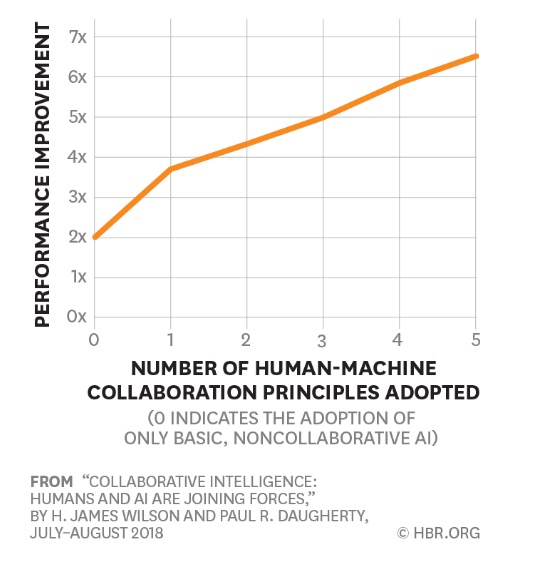To stay ahead of the game, IT professionals must develop top IT skills in 2023 and hone their skills for emerging digital technology to remain competitive. In this blog post, we will delve into some key areas that are expected to shape the future of digital technologies in 2030 and discuss how you can prepare yourself for success in this rapidly evolving landscape.
As the tech world progresses at an unprecedented rate, being digitally literate is becoming increasingly essential. We’ll explore why staying updated with these advancements is essential and provide guidance on developing your digital skills for a successful career.
Cybersecurity remains one of the most sought-after skill sets within the IT sector. We’ll examine its significance for businesses and individuals alike, along with different pathways into this field without requiring specific degrees.
Lastly, embracing artificial intelligence (AI) technologies is no longer optional but rather a necessity. This post will highlight the benefits of integrating AI into daily workflows while also discussing how you can develop new skill sets required for working alongside AI systems effectively.
By gaining proficiency in these top IT skills 2030 has to offer, you’ll be well-equipped to navigate through any technical challenges that lie ahead and secure your place as an indispensable asset within your organization or industry.
Digital Literacy in 2030
By 2030, the World Economic Forum predicts that half of all jobs will require some digital literacy. By 2030, having a working knowledge of digital technology and the ability to apply it proficiently in various aspects of work will be essential for success. As a result, individuals lacking digital literacy may find themselves at a disadvantage when competing for job opportunities or business growth.
The Importance of Staying Updated with Technological Advancements
In today’s rapidly evolving technological landscape, staying updated with the latest advancements is essential for success. With new tools and platforms emerging every day, professionals must be proactive about learning how these innovations can benefit their careers and industries. By regularly engaging with industry news sources like TechCrunch, attending webinars or conferences, and participating in online communities such as ITUOnline, you can stay ahead of the curve and maintain your competitive edge.
How to Develop Your Digital Skills for Future Career Success
To ensure future career success by honing your digital skills now:
- Identify gaps: Assess your current skillset against what employers are looking for within your field – this could include programming languages, data analysis tools or project management software.
- Create a plan: Set specific goals based on identified areas needing improvement; allocate time each week towards achieving them through self-study or formal training courses available on platforms like ITUOnline.
- Nurture curiosity: Explore new technologies outside traditional boundaries – this can lead to discovering innovative solutions or opportunities within your industry.
- Network: Connect with professionals in your field, attend events and join online forums to learn from others’ experiences and share knowledge – building a strong network is invaluable for staying updated on the latest trends.
Incorporating these tactics into your individual growth plan can help you remain ahead of the game and guarantee that you are prepared for accomplishment in the digital realm of 2030.
Staying abreast of technological advancements is key to acquiring digital literacy, a necessity for success in the digital age of 2030. Cyber security will be a top IT skill as businesses and individuals alike need to ensure their data remains secure from malicious attacks.
Key Takeaway:
By 2030, digital literacy will be a requirement for half of all jobs. To stay competitive in the rapidly evolving technological landscape, professionals must regularly update their skills by identifying gaps, setting goals, nurturing curiosity, and networking with others in their field. Incorporating these strategies into personal development plans can help ensure success in the digital world of 2030.
Cyber Security as a Top IT Skill
By 2030, cyber security is predicted to be one of the most important and in-demand IT skills. With an increasing reliance on technology and data storage, protecting sensitive information from cyber threats becomes crucial. Experts believe that there will be a skyrocketing demand for cybersecurity professionals who can help businesses safeguard their assets against potential attacks.
Why Cyber Security is Essential for Businesses and Individuals Alike
In today’s digital age, both businesses and individuals are at risk of falling victim to cyber-attacks. For organizations, the consequences of a cyber attack can be detrimental – resulting in financial losses or harm to their reputation. On the other hand, individuals may face identity theft or unauthorized access to personal information.
According to Accenture, the average cost of a cyber attack has risen by 72% over the past five years alone. This highlights how essential it is for everyone – regardless of industry or profession – to prioritize cybersecurity measures in order to protect themselves from potential harm.
Different Pathways into the Field Without Needing Specific Degrees
- Certifications: Many employers value certifications such as CompTIA Security+, Certified Information Systems Security Professional (CISSP), or Certified Ethical Hacker (CEH). These credentials demonstrate your knowledge and commitment to developing expertise within this field.
- Military Experience: If you have served in any branch of military service with experience related directly or indirectly to cybersecurity practices like intelligence analysis, network defense operations, etc., then these skills can translate well into civilian roles within this sector too.
- Online Courses: Platforms like ITUOnline offer comprehensive online courses that can help you develop the necessary skills and knowledge to enter the cybersecurity field, even if you don’t have a formal degree in IT or computer science.
- Mentorship & Networking: Joining professional organizations, attending conferences, and connecting with experienced professionals in the industry can provide invaluable insights into breaking into this competitive field without necessarily having a specific degree under your belt.
In summary, as we approach 2030, it’s essential for individuals looking to excel within their careers – whether they’re just starting out or seeking new opportunities – to prioritize developing their cybersecurity skill set. This will not only open doors toward lucrative job prospects but also ensure personal safety against potential cyber threats in an increasingly digital world.
To remain competitive, IT professionals must stay abreast of the latest cybersecurity trends and technologies. AI technology can offer a range of potential, necessitating the need to comprehend how these systems work and how they may be utilized fruitfully.
Key Takeaway:
By 2030, cyber security is expected to be one of the most important and in-demand IT skills due to an increasing reliance on technology and data storage. Cybersecurity measures are essential for both businesses and individuals as they face potential financial losses or damage to their reputation from cyber-attacks, making it crucial for everyone to prioritize developing their cybersecurity skill set through certifications, military experience, online courses, mentorship & networking.
Take Your Cybersecurity Skills to the Maximum Level
Embracing AI Technologies
Artificial Intelligence (AI) technologies are expected to play an increasingly significant role in various industries by 2030. According to the Harvard Business Review, 1,500 firms in a range of industries, shows that the biggest performance improvements come when humans and smart machines work together, enhancing each other’s strengths. Basically, those who embrace AI technologies alongside human expertise will continue to evolve successfully within their fields. Open-mindedness towards incorporating these innovations could lead to better problem-solving abilities and overall efficiency.
The Benefits of Integrating AI into Daily Workflows
Incorporating AI into daily workflows can bring numerous advantages, such as:
- Increased productivity: By automating repetitive tasks, employees can focus on more strategic work that requires creativity and critical thinking.
- Better decision-making: With the help of data analysis and predictive algorithms, businesses can make informed decisions based on real-time insights.
- Enhanced customer experience: Chatbots and virtual assistants provide personalized support around the clock, improving customer satisfaction rates.
- Faster innovation: Machine learning models enable companies to identify trends quickly and develop new products or services accordingly.
Developing New Skill Sets Required for Working Alongside AI Systems
To effectively collaborate with AI systems, professionals must acquire a combination of technical knowledge and soft skills. Some essential competencies include:
- Data literacy: A solid understanding of how data is collected, processed, analyzed, and interpreted is crucial for working with AI-driven technologies.
- Programming languages: While not every job will require programming skills, familiarity with popular languages like Python or R can be beneficial for interacting with AI systems and understanding their capabilities.
- Critical thinking: As AI becomes more prevalent in decision-making processes, professionals must develop the ability to evaluate recommendations generated by algorithms critically and make informed choices based on context.
- Collaboration: Working alongside AI systems requires effective communication between humans and machines. Professionals should be able to articulate their needs clearly and adapt to new ways of collaborating as technology evolves.
It is critical to invest in gaining an understanding of the latest trends, such as AI, if one wishes to stay competitive. Platforms like ITUOnline offer comprehensive courses that cover a wide range of topics related to IT, development, cybersecurity, and project management fields – making it easier than ever before for individuals looking to expand their knowledge base or transition into these industries as a career change.
Embracing AI technologies is essential to stay competitive in the IT field and ensure success for businesses of all sizes. To remain successful, it’s important to develop skills beyond those related to AI, such as higher cognitive abilities, social-emotional capabilities, and technological proficiency.
Key Takeaway:
By 2030, AI technologies will play a significant role in various industries. Integrating AI into daily workflows can bring numerous benefits such as increased productivity, better decision-making, enhanced customer experience and faster innovation. Professionals must develop new skill sets to effectively collaborate with AI systems including data literacy, programming languages, critical thinking and collaboration skills.
Top Three Skill Sets Needed by Workers in 2030
In order to ensure a successful future, professionals should focus on honing their higher cognitive skills, social-emotional abilities and technological proficiency for the ever-evolving job market of 2030. According to a research report by McKinsey Global, there are three main areas workers should concentrate on: higher cognitive skills, social-emotional abilities, and technological proficiency.
Higher Cognitive Skills: Advanced Literacy, Writing, Quantitative Analysis
The first set of skills involves advanced literacy and writing capabilities. This includes being able to read complex texts with comprehension and communicate effectively through written language. Additionally, quantitative analysis is crucial for making data-driven decisions and understanding numerical information in various contexts.
- Advanced Literacy: Improve your reading comprehension by engaging with diverse materials such as industry reports or academic articles.
- Writing: Practice writing clear and concise content that accurately conveys your message across different platforms (e.g., emails or blog posts).
- Quantitative Analysis: Develop analytical skills through online courses like those offered at Coursera.
Social-Emotional Abilities: Empathy, Adaptability, Continuous Learning
In today’s fast-paced world where technology constantly evolves, empathy towards colleagues’ needs or customers’ expectations becomes increasingly important. Being adaptable allows you to adjust quickly when faced with new challenges or changing environments. Lastly, continuous learning is essential for staying up-to-date with industry trends and maintaining a competitive edge.
- Empathy: Practice active listening and understanding others’ perspectives to build stronger relationships.
- Adaptability: Embrace change by being open-minded and flexible in your approach to problem-solving.
- Continuous Learning: Stay informed about the latest developments in your field through resources like online courses or attending conferences.
Technological Proficiency: Data Analysis, Cloud Computing
The final skill set focuses on technological proficiency. This proficiency necessitates an aptitude for extracting and interpreting data, empowering one to make informed choices based on available information. Additionally, cloud computing knowledge is crucial as more businesses migrate their operations to cloud-based platforms for increased efficiency and security.
- Data Analysis: Master tools such as Excel or R programming language through online tutorials or certification programs like those offered at DataCamp.
- Cloud Computing: Become proficient with popular platforms like AWS or Azure by enrolling in relevant training courses from providers such as ITU Online.
Focusing on these three key areas will not only help professionals stay ahead of the curve but also enable them to adapt seamlessly within an ever-evolving job market landscape. By investing time into developing higher cognitive skills, social-emotional abilities, and technological proficiency now, workers can ensure they remain valuable assets within their industries well beyond 2030.
Key Takeaway:
Professionals should focus on developing higher cognitive skills, social-emotional abilities, and technological proficiency to secure lucrative careers and adapt in an ever-changing job market. This includes improving reading comprehension, writing clear content, practicing empathy and adaptability, staying informed about industry trends through continuous learning, mastering data analysis tools like Excel or R programming language and becoming proficient with cloud computing platforms such as AWS or Azure.
Frequently Asked Questions for Future-Proof Your Career in Technology
What are the top 5 IT skills needed in 2030?
In 2030, the top five IT skills are expected to include advanced digital literacy, cybersecurity expertise, proficiency in artificial intelligence (AI) and machine learning, data analysis and visualization capabilities, and knowledge of cloud computing. These skill sets will enable professionals to adapt to rapidly evolving technology trends and maintain a competitive edge in their careers.
Which technology will be most in demand by 2030?
Artificial Intelligence (AI) technologies are predicted to be the most in-demand by 2030. As AI continues to advance across various industries such as healthcare, finance, transportation, and more, businesses increasingly seek professionals with expertise in machine learning algorithms IBM, natural language processing Towards Data Science, computer vision OpenCV, and robotics automation processes UiPath.
What skills will employers be looking for in 2030?
In addition to technical proficiencies like AI or cybersecurity know-how, employers of the future will value higher cognitive abilities (advanced literacy and quantitative analysis), social-emotional aptitudes (empathy and adaptability), and a continuous learning mindset McKinsey Global Institute Report. Demonstrating these transferable competencies alongside domain-specific expertise will be essential for career success.
What are the most powerful IT skills?
The most powerful IT skills include proficiency in programming languages like Python, Java, and JavaScript; expertise in cybersecurity measures such as ethical hacking or risk management CompTIA Security+; data analysis tools (SQL, R); cloud computing platforms (AWS, Azure) Amazon Web Services Training, Microsoft Azure Training; and AI/ML frameworks (TensorFlow). These skills enable professionals to create innovative solutions across industries while ensuring security and efficiency.
Conclusion
In conclusion, the top IT skills for 2030 will require a combination of digital literacy, cybersecurity knowledge, and proficiency in AI technologies. Workers will need to develop higher cognitive skills, social-emotional abilities, and technological proficiency to stay competitive in the workforce.
To stay ahead of the curve and prepare for these changes, individuals should invest in online learning platforms like ITU Online that offer courses on these emerging technologies. By continuously expanding their skill sets and staying updated with technological advancements, workers can position themselves for future career success.

























